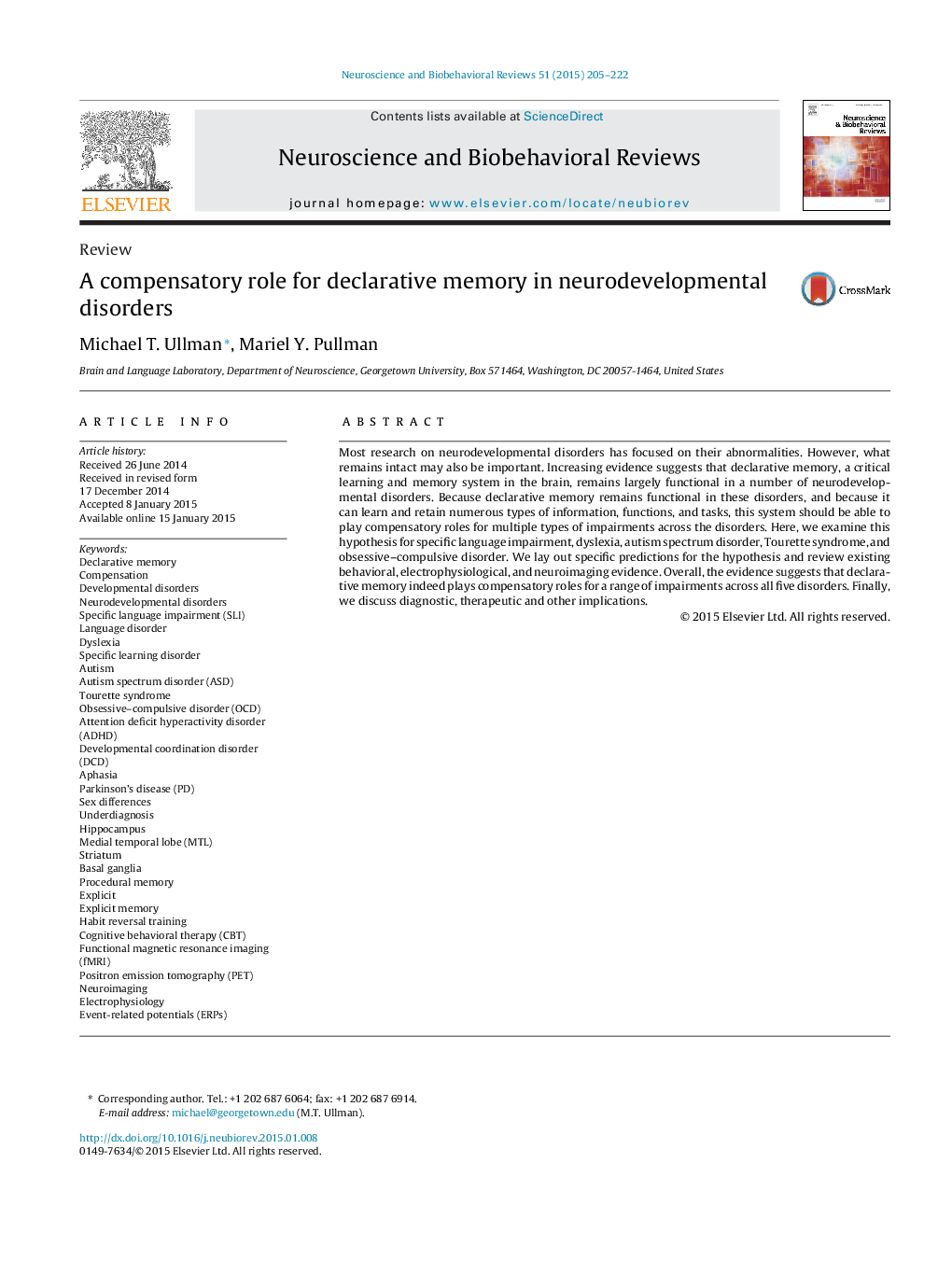| Article ID | Journal | Published Year | Pages | File Type |
|---|---|---|---|---|
| 937686 | Neuroscience & Biobehavioral Reviews | 2015 | 18 Pages |
•Declarative memory compensates for multiple deficits across disorders.•The disorders include specific language impairment, dyslexia, autism spectrum disorder, Tourette syndrome, and OCD.•Compensation by declarative memory has therapeutic, diagnostic, and basic research implications.
Most research on neurodevelopmental disorders has focused on their abnormalities. However, what remains intact may also be important. Increasing evidence suggests that declarative memory, a critical learning and memory system in the brain, remains largely functional in a number of neurodevelopmental disorders. Because declarative memory remains functional in these disorders, and because it can learn and retain numerous types of information, functions, and tasks, this system should be able to play compensatory roles for multiple types of impairments across the disorders. Here, we examine this hypothesis for specific language impairment, dyslexia, autism spectrum disorder, Tourette syndrome, and obsessive–compulsive disorder. We lay out specific predictions for the hypothesis and review existing behavioral, electrophysiological, and neuroimaging evidence. Overall, the evidence suggests that declarative memory indeed plays compensatory roles for a range of impairments across all five disorders. Finally, we discuss diagnostic, therapeutic and other implications.
